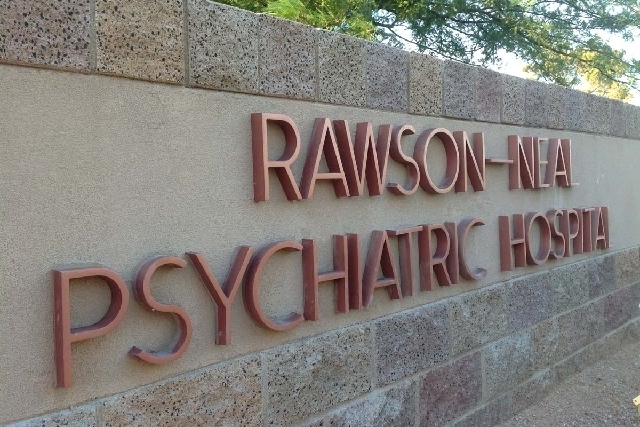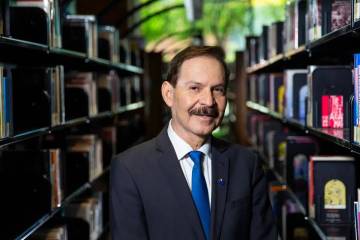Council proposes 16 ways to improve Nevada’s mental health services
Gov. Brian Sandoval’s Behavioral Health and Wellness Council on Tuesday approved its first round of recommendations to improve the state’s struggling mental health system, but whether any will be enacted remains a question given Nevada’s revenue challenges and competing priorities.
A report with 16 recommendations garnered unanimous support from the council and will now go to Sandoval.
The governor believes in mental health, said Joel Dvoskin, council chairman. But eventually, it will be the state Legislature that decides what gets funded.
“There’s lots of worthy projects that are competing for funding,” he said.
The council, responding to mental health services issues that led to recent rolling closures of Southern Nevada emergency rooms, met Tuesday at the Sawyer Building. Most of the proposals are short-term fixes for the state’s mental health system, which officials say can’t adequately provide for those in need.
The council is expected to make a second round of recommendations focusing on long-term solutions by the end of December.
Among the short-term fixes is a Super-User Project, an intensive case management program targeting frequent users at emergency rooms, jails and inpatient facilities. The estimated program cost is between $20,000 and $30,000 per person. A significant portion of the expense is expected to be reimbursed by insurers or Medicaid, according to the recommendation.
Other recommendations include increasing the availability of short-term crisis triage services, increasing the number of psychiatric inpatient beds in Southern Nevada, providing appropriate mental health services to public schools and making changes to the Legal 2000 process.
A Legal 2000 allows people considered to be a risk to themselves or others to be held for up to 72 hours. Proposed changes to this process include expanding the list of professionals who are able to clear a patient subject to a Legal 2000. At this time, only a physician can release Legal 2000 patients.
The recommendations will hopefully carry enough weight to be taken on by the Legislature, Dvoskin said.
“If all the recommendations were adopted, it would help a lot,” he said, adding that would especially help alleviate emergency room crowding caused by the mentally ill throughout the valley.
The council also proposes expanding mobile crisis services for children; enhancing peer services and counseling for those suffering from a mental illness; developing efforts to expand the mental health workforce; and launching an anti-stigma and suicide prevention campaign.
Council member Dr. Dale Carrison, University Medical Center’s chief of staff and head of emergency services, said in the past, mental health was not made a top priority and the attempts to make it so were disjointed.
“This is the first time there’s been an organized community effort,” he said of the work by the council and other groups.
Council members were drawn from a broad spectrum, including state lawmakers, which helps the cause, Carrison said.
“Everybody was there to solve a problem,” he said.
The difference this time around is that a large number of people are aware of the problem and focusing on the issue, said George Ross, who heads a legislative subcommittee on health care, which has identified mental health as a priority.
“I think something will be done,” he said.
Council member Mike Willden, director of the Nevada Department of Health and Human Services, said he was happy with the unity behind the recommendation and is looking forward to Sandoval getting the report in his hands.
Willden’s department is working on bill drafts and budget items that align with the council’s recommendations. He said the recommendations need to be prioritized based on what the immediate needs are, such as increasing inpatient beds and triage beds for the mentally ill.
“The state is taking it more seriously,” he said of mental health system concerns. State officials have already taken action on various issues as appropriate, he added.
There is no price tag on how much it would cost for the state to adopt all the council’s recommendations because many services would be reimbursed by Medicaid, Dvoskin said.
“One of our main goals is for Nevada to get its fair share of federal funding,” he said.
Moving forward on the rest of the council’s work, Dvoskin said “We are going to take on each issue the best we can.”
Contact Yesenia Amaro at yamaro@reviewjournal.com or 702-383-0440. Find her on Twitter: @YeseniaAmaro.




























